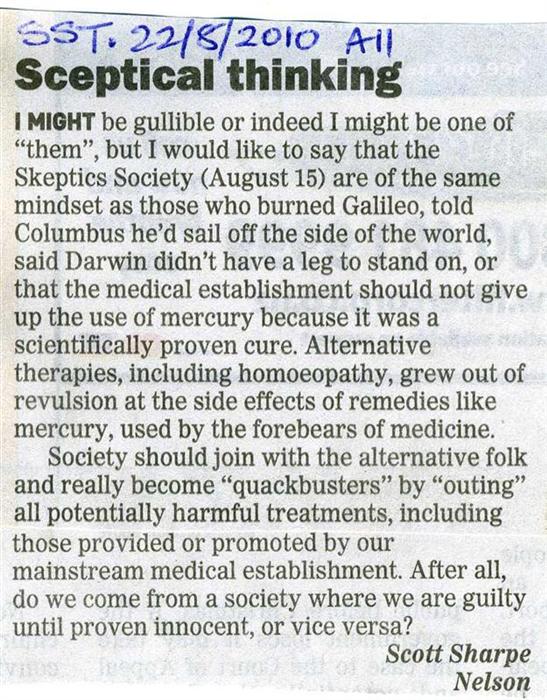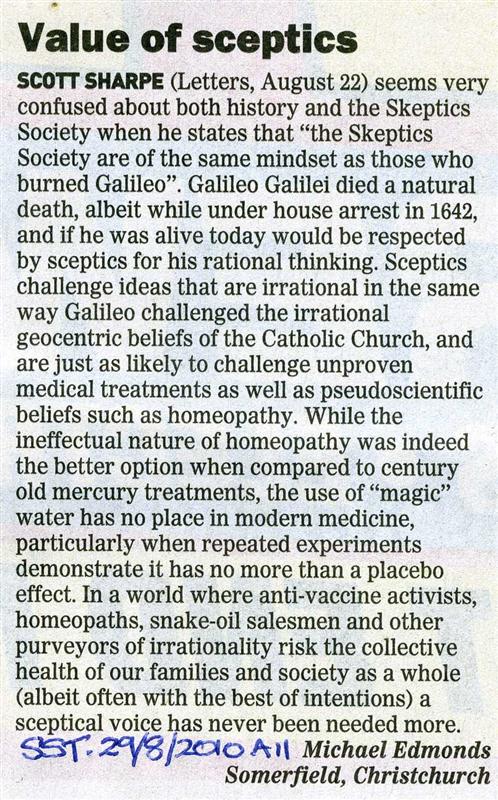Adam Dudding of the Sunday Star times, wrote and article on 15 August, 2010, called “The exasperation-filed: they want to believe” On 22nd, August, Scott Sharpe from Nelson replied:

To which Michael Edmonds from Somerfield, Christchurch replied on the 29th August 2010:

So, skeptics are “just as likely to challenge unproven medical treatments as we all….” ??
So who is a skeptic, and who is not?
The opening statement on a Skeptics website, says:
“The Skeptics Society is a nonprofit 501(c)(3) educational organization that promotes science literacy and critical thinking.” (emphasis mine)
BUT…. Skeptics consider that ONLY “science” is accurate, and therefore is pontifical ... which defines the foundations of what they want to believe in, and their world view. Skeptics also rely on the willingness of their listeners to believe anyone who portrays themselves as having the “authority to know”, or being too lazy to go and look at the evidence for themselves.
Wikipedia – which changes all the time depending on whether the reader likes the definition or not (which is why I’ve pdf’d and uploaded the page) discusses the accurate philosophical definition of skepticism, and described it as:
“Skepticism is an approach to accepting, rejecting, or suspending judgment on new information that requires the new information to be well supported by evidence.[3] Individuals who proclaim to have a skeptical outlook are frequently called skeptics, often without regard to whether it is philosophical skepticism or empirical skepticism that they profess.”
Two of my favourite historic (real) skeptics were Marconi, and Barnes Wallace. Both had to deal with the pseudo-skeptic “experts” of the day, who suffered from what is called, “The arrogance of ignorance” and “blindness of Authority”.
What I read in places like Sciblogs, I see a group who appear to conform to Susan Blackmore’s definition on Wikipedia, which is:
“There are some members of the skeptics’ groups who clearly believe they know the right answer prior to inquiry. They appear not to be interested in weighing alternatives, investigating strange claims, or trying out psychic experiences or altered states for themselves (heaven forbid!), but only in promoting their own particular belief structure and cohesion..."
Skeptics call themselves the “Consumers’ Institute of the mind” but as Scott Sharpe said, they are more accurately aligned with those who opposed Galileo, Marconi, or Copernicus .
Is medical practice always aligned with medical fact? No. Perhaps the skeptics might like to wake up and consider a few examples.
How about the one mentioned in the Sunday Star Times article "What to do if your baby has fever… some suggested pamol”.



